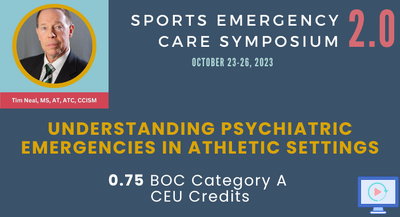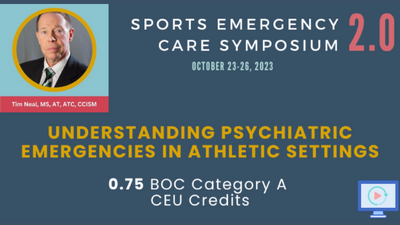General Course Information
Learning Material
43:14
AI Chat Bot
The chat bot may hallucinate. Please double check results.
Understanding Psychiatric Emergencies in Athletic Settings › Learning Material
Presentation (Video)
Updated Jan 22, 2024
Copyright © 2025 Action Medicine Consultants, LLC
___MESSAGE___
___MESSAGE___


